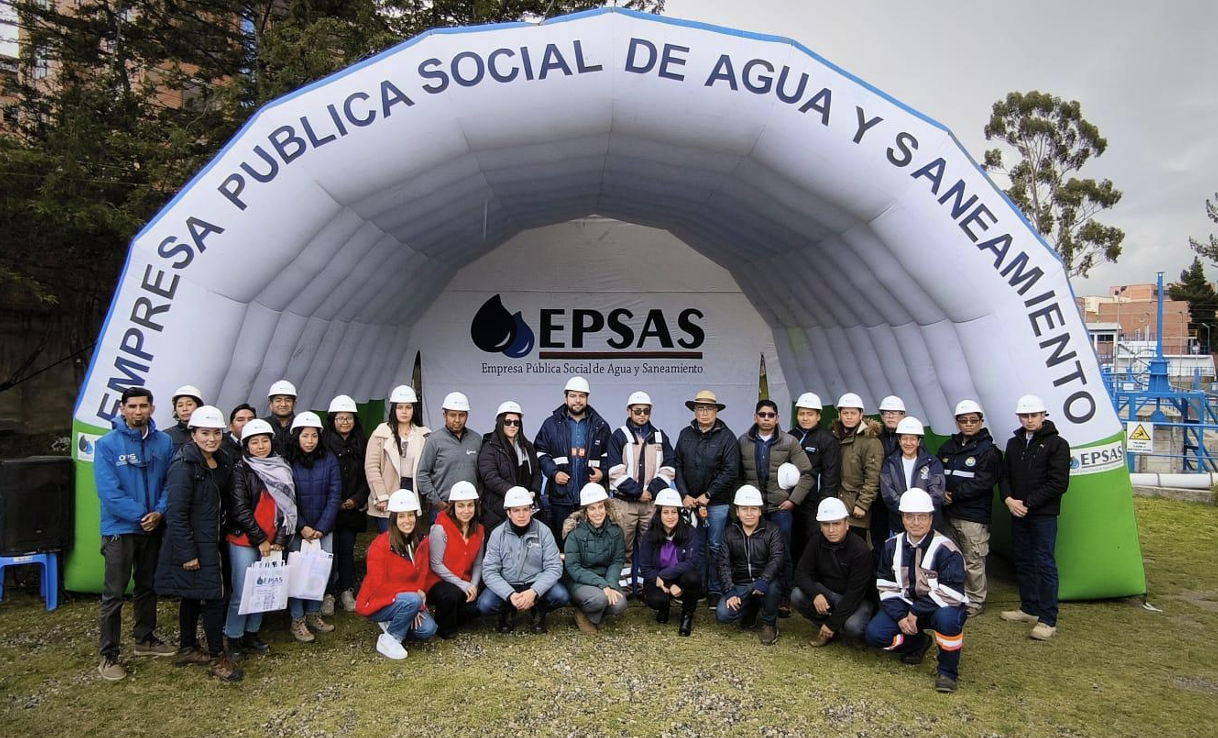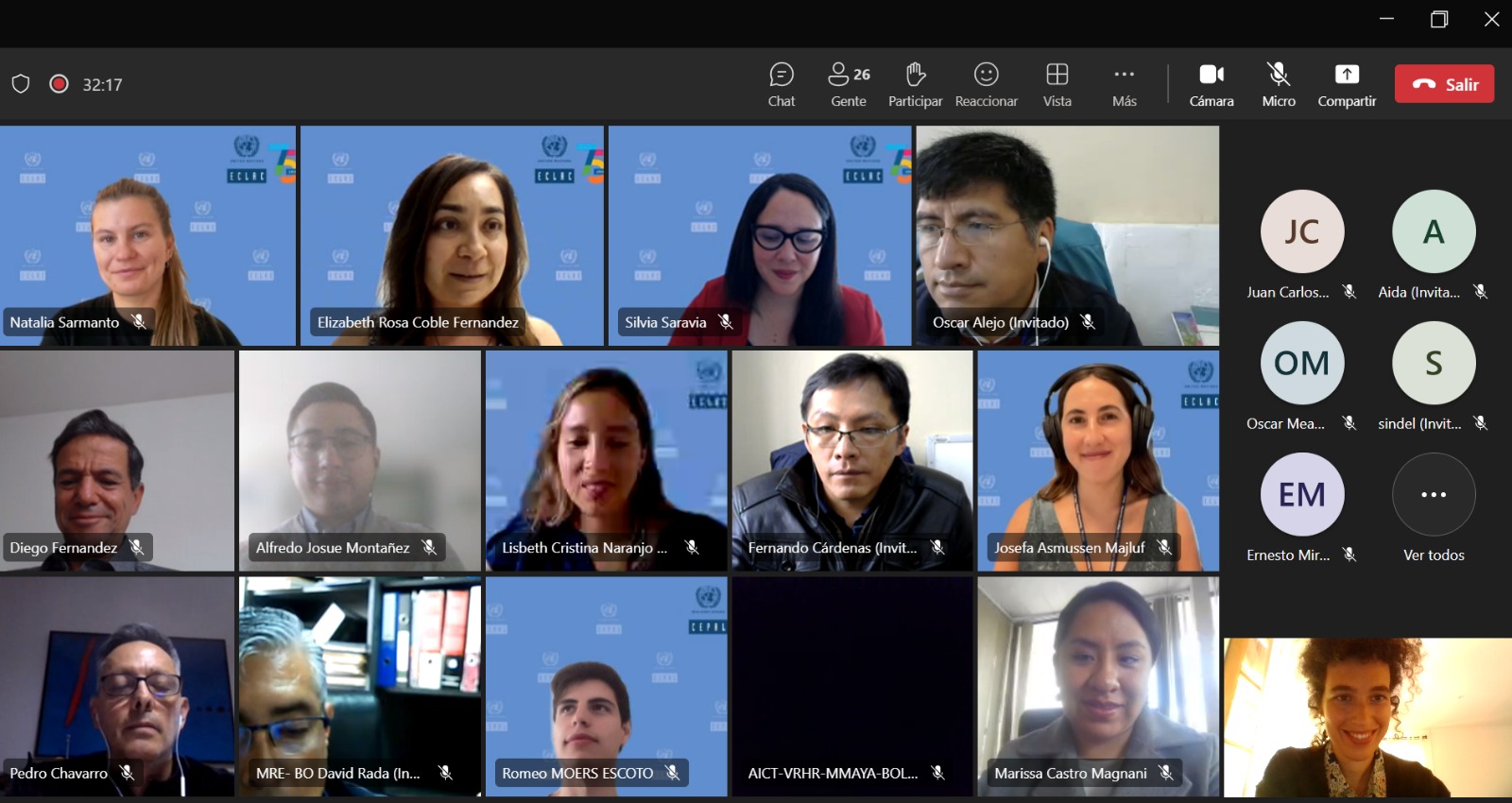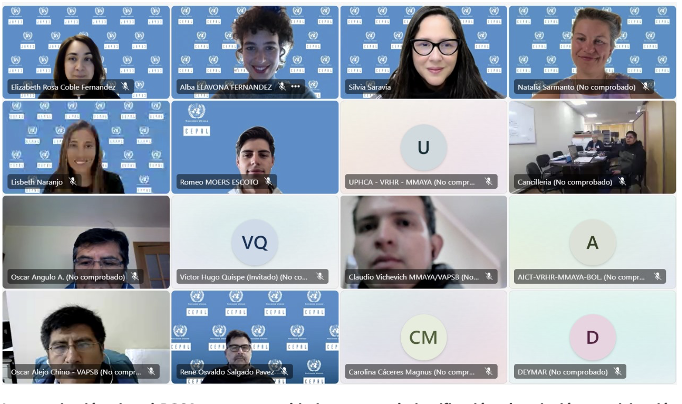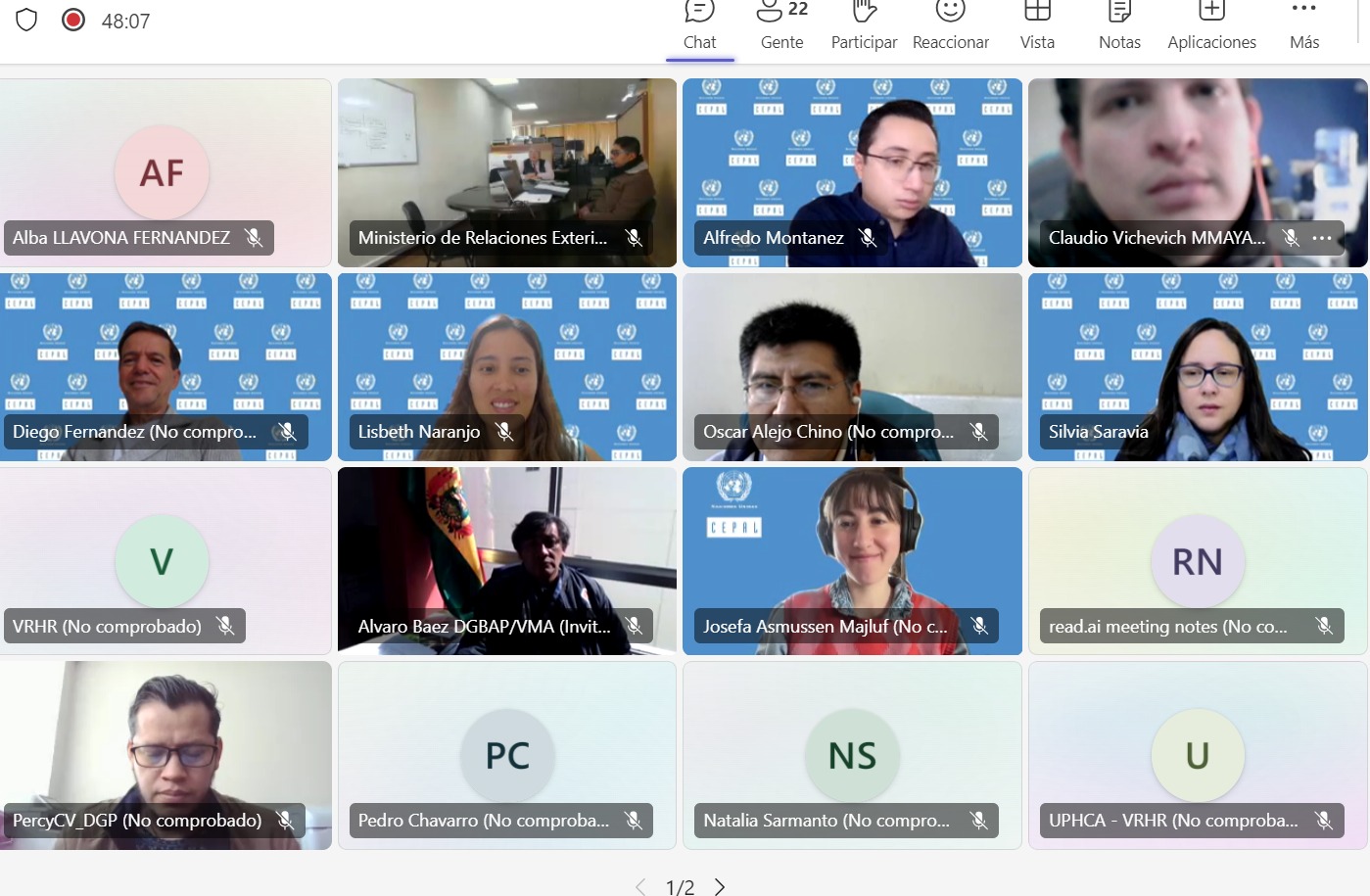ECLAC and the Ministry of Foreign Affairs of Bolivia hold a training workshop “Governance of Resilient Dams: Water-Energy-Food-Ecosystems Nexus Approach”
Work area(s)
Topic(s)
On May 6 and 7, 2025, in the city of La Paz, the training workshop “Governance of Resilient Dams: Water, Energy, Food and Ecosystems Nexus” was held, with the participation of representatives from various national institutions, international organizations, and water management experts. The event was conducted within the framework of the Regional Network and Observatory for Water Sustainability (ROSA) Project.

La Paz, May 6 and 7, 2025 – Within the framework of the Regional Network and Observatory for Water Sustainability (ROSA) project, ECLAC, together with the Ministry of Foreign Affairs of the Plurinational State of Bolivia, held the in-person training workshop titled “Governance of Resilient Dams: Water, Health, Energy, Food and Ecosystems Nexus.”
The workshop included representatives from various ministries, among them the Ministry of Foreign Affairs, the Ministry of Defense, the Ministry of Rural Development and Lands, the Ministry of Hydrocarbons and Energy, the Ministry of Environment and Water, the Ministry of Development Planning, and the Ministry of Health. Representatives from the Autonomous Departmental Government of La Paz and the Municipal Autonomous Governments of La Paz and El Alto also participated. In addition, the event included the presence of United Nations team members in Bolivia, including FAO, IOM, UN Women, UNICEF, and PAHO.
The workshop aimed to strengthen the participants’ capacities in governance of resilient dams, with a nexus approach to water, energy, food, and ecosystems—an issue of great relevance for the country’s water management. The two-day workshop included a series of presentations by ECLAC and national representatives, a practical session on the Nexus, a technical visit, and a roundtable with recommendations from the United Nations system to the country.
On the first day, opening remarks were delivered by Mr. David Rada, Head of the International Waters Unit of the Plurinational State of Bolivia, and Ms. Silvia Saravia Matus, Economic Affairs Officer at ECLAC. Both agreed that the workshop was an opportunity to learn from successful experiences, share knowledge, and work together toward innovative solutions for the country’s and the region’s water security.
Then Ms. Elizabeth Coble gave a presentation on the ROSA project to provide context on the various activities in which the Plurinational State of Bolivia had previously participated.
Following this, Ms. Alba Llavona gave a presentation introducing the Nexus approach through the presentation of the results of the “Comparative Analysis of Nexus Actions” conducted by ECLAC. Afterwards, Ms. Lisbeth Naranjo presented the “Methodological Guide for Designing Policies with a Nexus Approach.” A practical session followed, allowing participants to apply the concepts learned in the workshop.
The last session of the first day was led by Mr. Fernando Cárdernas from the Ministry of Environment and Water, Mr. Oscar Meave from EMAGUA, Mr. Tomas Quisberth from EPSAS, and Mr. Ramiro Ríos from Empresa Misicuni, who presented national experiences of the Plurinational State of Bolivia regarding multipurpose dams.
On the second day, a technical visit was carried out to the Hampaturi multipurpose dam and the Pampahasi drinking water plant. During the visit, in addition to technical tours, participants had the opportunity to engage in dialogue with women representatives from the Hampaturi communities, who shared the benefits of implementing the multipurpose project.
To close the workshop, the final session featured the participation of Mr. Joaquín Naranjo (UN Women), Mr. Edgar Paniagua (UNICEF), Yara Morales (IOM), Daniel Cruz Fuentes (PAHO), and Wilson Rocha (FAO), colleagues from the United Nations system in the country. They offered recommendations for strengthening governance of multipurpose dams from their areas of expertise, aiming to move toward integrated management of these infrastructures, promoting their resilience and sustainability.
The closing remarks were given by Ms. Marissa Castro, Director General of Boundaries and International Transboundary Waters of the Plurinational State of Bolivia, and Ms. Silvia Saravia Matus (ECLAC), who expressed their gratitude to the participants and concluded that the Nexus approach is essential for strong and coordinated governance in water management.
Related content

First Online Technical Assistance under the ROSA Project – Plurinational State of Bolivia
As part of the Water Sustainability Network and Observatory (ROSA) project, the first online technical assistance for the Plurinational State of Bolivia was held on February 15, 2024. This inaugural…

ECLAC organizes the second virtual training session as part of the ROSA project's technical assistance to the Plurinational State of Bolivia: "International Processes Around Water Resources."
The virtual ROSA training aimed to review the justification, description, participation, and outcomes of the various international processes related to water management, including aspects relevant to…

Third Virtual Training Session under the ROSA Project for the Plurinational State of Bolivia: “Application of Circular Economy Principles in the Drinking Water and Sanitation Sector”
On Friday, September 6, 2024, the third online training session on the “Application of Circular Economy Principles in the Drinking Water and Sanitation Sector” was held, directed at the Plurinational…

ECLAC and the Ministry of Foreign Affairs of Bolivia organized the high-level discussion “Water at the Center of Sustainable Development” as part of the Bicentennial of the Plurinational State of Bolivia
With the participation of national authorities, international organizations, and regional experts, the high-level discussion “Water at the Center of Sustainable Development” was…